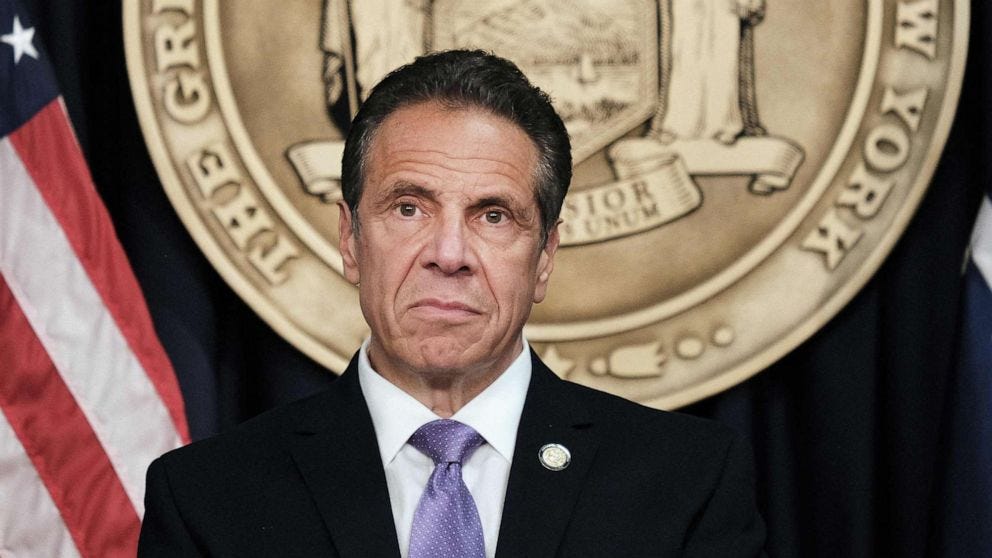Wake Up To Politics - August 4, 2021
Wake Up To Politics: Progressives score policy victory — and suffer electoral setback
Good morning! It’s Wednesday, August 4, 2021. Election Day 2022 is 461 days away. Election Day 2024 is 1,189 days away.
Progressives score policy victory — and suffer electoral setback
The progressive wing of the Democratic Party took one step forward and one step backward on Tuesday.
The step backward came courtsey of voters in Ohio’s 11th congressional district, who sided with Cuyahoga County Democratic Party chairwoman Shontel Brown over former state Sen. Nina Turner in a hotly contested special primary election.
The race had become a proxy battle between progressive and establishment Democrats, with Sen. Bernie Sanders (I-VT) and Rep. Alexandria Ocasio-Cortez (D-NY) coming to Cleveland to campaign for Turner, while House Majority Whip Jim Clyburn (D-SC) rallied support for Brown.
Turner, who co-chaired Sanders’ 2020 presidential bid, began the race as the frontrunner: an internal poll conducted in late May showed her with a 35-point advantage over Brown. But on Tuesday, Brown dispatched Turner with relative ease, winning 50.2% of the vote to her rival’s 44.5%.
The race was a reminder of the power wielded in the party by influential Black pols like Clyburn, whose 2020 endorsement of President Joe Biden also fueled a come-from-behind victory over Sanders. And it was yet another electoral blow for progressives, who also faltered in the New York City mayoral primary in June with the election of Eric Adams, a Black centrist former police captain.
“On this night, we will not cross the river,” Turner said in her concession speech.

But the loss in Ohio came on the same day as a major progressive victory in Washington.
For days, President Biden and congressional Democrats had played a game of political hot potato on the issue of evictions, which left millions of Americans in the balance as a federal ban on evictions lapsed on Saturday.
The eviction moratorium was put in place by the CDC in September to protect Americans who had difficulty paying rent during the COVID-19 pandemic. The Supreme Court upheld the ban in June, but made clear it was only doing so because the moratorium was expiring soon; accordingly, the Biden administration announced that the ban would not be extended past July.
That led to an awkward back-and-forth, as Biden urged Congress to extend the moratorium instead while progressive lawmakers insisted that he had the authority — and moral imperative — to do so.
Progressives won out on Tuesday, as Biden announced that the CDC would issue a new 60-day eviction moratorium, which would take effect in parts of the country designated as having “substantial” or “high” coronavirus transmission — covering 80% of U.S. counties, and 90% of the population.
The policy change was in no small part due to the activism of Rep. Cori Bush (D-MO), who spent three nights sleeping on the Capitol steps to draw attention to the plight of American renters facing possible eviction, joined by other members of the progressive “Squad” such as Ocasio-Cortez.

The events of Tuesday depict a progressive movement still searching for its place in Biden’s Washington.
In some ways, the success of Bush’s eviction protest proved the theory of the case for the Justice Democrats, the group that has backed a slew of outsider candidates, including Bush and Ocasio-Cortez — as well as would-be “Squad” members like Turner — in hopes that they would draw on their activist backgrounds to affect change in Washington.
Bush is perhaps the House Democrat most grounded in movement politics: her entrance to politics came by way of the “Black Lives Matter” protests in Ferguson, Missouri, which eventually led to her 2020 primary victory over a longtime congressional incumbent. Bush was also once homeless herself, an experience that inspired her push for the ban on evictions.
The success of her protest was a rare example of the White House and congressional leaders bowing to the activism of a rank-and-file lawmaker. “Today marks a turning point in how this White House views progressives,” Rep. Mondaire Jones (D-NY) said on Tuesday.
But even as liberals proved their growing clout among Democratic leaders, the progressive movement was once again dealt a blow by Democratic voters: Brown was just the latest moderate to score a high-profile win at the ballot box, following Biden and Adams.
There are new signs, however, that top progressives are recognizing this disconnect and searching for ways to address it.
Our Revolution, the successor organization to Sanders’ presidential campaign, rebranded itself last week in a more moderate fashion, an attempt to appeal to a broader Democratic electorate that has repeatedly shown its distaste for some of the left’s farther-reaching aims.
“What we’re trying to build is something that is longer term,” Our Revolution executive director Joseph Geevarghese told the Associated Press, notably repositioning his group’s identity as that of “pragmatic progressives.”
The Rundown
More top stories to know.
CUOMO: “New York Governor Andrew Cuomo groped, kissed or made suggestive comments to 11 women in violation of the law, the state’s attorney general said on Tuesday, prompting local prosecutors to launch a criminal investigation and reigniting calls for him to resign or be impeached,” Reuters reports.
“The findings of a five-month investigation into allegations of sexual harassment found the governor created a ‘toxic’ workplace and that his office illegally retaliated against the first accuser to go public.”
Attorney General Letitia James’ findings led to renewed calls for the Democratic governor to resign from President Joe Biden and the entire New York congressional delegation. Cuomo has resisted those calls, though, and denied the allegations; he now faces a possible impeachment push from the state legislature.
Here is the full 168-page report. Here are some of its biggest findings, via NBC News.
CORONAVIRUS: “With a new surge of coronavirus infections ripping through much of the United States, the Food and Drug Administration has accelerated its timetable to fully approve Pfizer-BioNTech’s coronavirus vaccine, aiming to complete the process by the start of next month,” The New York Times reports.
“New York City will require workers and patrons at indoor businesses to show proof of vaccination starting on Sept. 13, becoming the first major U.S. city to take such action amid a surge of new cases nationwide driven by the highly transmissible delta variant,” NPR reports.
AT THE BORDER: “The number of children traveling alone who were picked up at the Mexican border by U.S. immigration authorities likely hit an all-time high in July, and the number of people who came in families likely reached its second-highest total on record, a U.S. official said Monday, citing preliminary government figures,” The Associated Press reports.
Policy Roundup: Global
On Wednesdays, Wake Up To Politics contributor Miles Hession offers a briefing on the week’s top international news:
Prospects for swift a return to the Iran nuclear deal have sunk after top Iranian officials question the credibility of the U.S. and allies. Despite the progress made in previous rounds of negotiations this year, Supreme Leader Ali Khamenei expressed a lack of trust in the West, leaving the fate of negotiations uncertain. Khamenei’s comments were largely seen as a public rebuke of outgoing President Hassan Rouhani, who had helped draft the initial deal and remained committed to rejoining the deal in his last year in office.
Ebrahim Raisi, Iran’s new president who appeared hand-picked by Khamenei, has further complicated negotiations by quickly separating himself from the more moderate Rouhani. Raisi has promised to get all sanctions imposed on Iran lifted, which the U.S. maintains would only occur should Iran follow the original nuclear deal.
China has expanded diplomatic communications with the Taliban on the eve of NATO troop withdrawals from Afghanistan and in the midst of recent surge by Taliban forces. While China still pledges its support for the Afghan government, recent meetings and outreach by the Chinese government towards the Taliban signaled new posturing by China as the U.S. and allied forces plan their withdrawal. China sees a stable Afghanistan as crucial for regional security in Central Asia, and as China continues progress on the Belt and Road Initiative this regional security is only increasing in importance.
With stronger ties to the Taliban, China would be in a unique position to spearhead negotiations between the Afghan government and the Taliban, and ensure a government that is supportive of Chinese goals. However, a hostile takeover by the Taliban would likely spell the end for a conciliatory Afghanistan.
Hotlines have been restored between North and South Korea as the North indicated it is open to warmer relations. These military and diplomatic hotlines have been closed for 14 months after the North labeled the South as an enemy and abruptly cut communication. Relations between the two countries had deteriorated rapidly after a failed denuclearization summit in 2019, but a deepening economic crisis in the North has put pressure on Supreme Leader Kim Jong-un to restore ties.
South Korea has maintained its desire for further diplomacy and summits between the two countries to rebuild trust and work towards denuclearization. The North has also stipulated they would be willing to resume denuclearization talks should the U.S. lift certain sanctions as a precondition.
More global headlines, via Miles:
Bodies have washed up on Sudanese river banks as war continues to rage in Tigray, Ethiopia.
Top military official Min Aung Hlaing has declared himself Prime Minister of Myanmar and has extended the state of emergency, promising new elections.
After a Iranian-alleged attack on an Israeli oil tanker, the U.S., Israel, and the U.K. have all promised retribution towards Iran.
Over 700 were detained during a recent crackdown on protests that have flourished in Cuba over dissatisfaction with the government.
Daybook
What’s happening in Washington today. (All times Eastern)
Executive Branch
→ President Joe Biden and Vice President Kamala Harris will receive their daily intelligence briefing at 10 a.m. Then, at 11 a.m., Biden will meet with Dr. Eric Lander, the director of the White House Office of Science and Technology Policy, to discuss preparing for future pandemics. Biden made Lander’s post as the presidential science adviser a Cabinet-level position upon taking office.
→ White House Press Secretary Jen Psaki will hold her daily press briefing at 12:30 p.m.
Legislative Branch
→ The Senate will convene at 10:30 a.m. and resume consideration of the bipartisan infrastructure package, formally known as the Infrastructure Investment and Jobs Act. At around 12:15 a.m., the chamber will vote on an amendment by Sen. Ron Johnson (R-WI), which would prohibit the cancellation of border wall contracts inked during the Trump administration.
The amendment will require 60 votes to be added to the package; roll call votes on other amendments are possible throughout the day.
→ The House is not in session.
Judicial Branch
→ The Supreme Court is on recess until October.
Thanks for waking up to politics! If you enjoy reading this newsletter, I’d be so grateful if you’d consider donating to help support me and my work. If you want to show off your support for Wake Up To Politics, you can also buy some merchandise.
Also: don’t forget to tell your friends and family to sign up for the newsletter using your unique referral link. And if you have any questions or comments, feel free to email me at any time.






